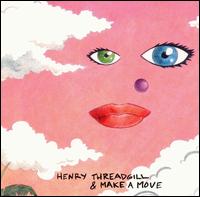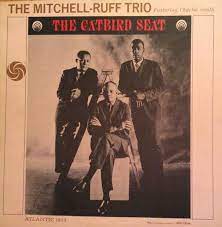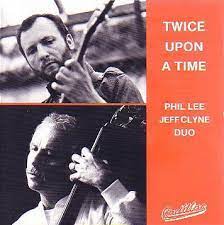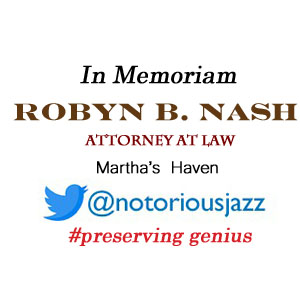
Daily Dose Of Jazz…
Bryan Carrott was born in Queens, New York on April 23, 1959. After graduating from Fiorello H. LaGuardia High School of Music & Art and continued at the Manhattan School of Music before studying percussion with Morris Lang at Brooklyn College, then studied vibraphone with Dave Samuels at William Paterson University, receiving his Bachelor of Music degrees in Jazz Studies and Jazz Performance.
He has toured and/or recorded with David Fathead Newman, Ralph Peterson, Henry Threadgill, Muhal Richard Abrams, Sam Rivers, Don Byron, Dave Douglas, Charlie Hunter, Bob Moses, Roy Campbell, Herbie Mann, Cassandra Wilson, John Lurie & the Lounge Lizards, Greg Osby, Tom Harrell, Bennie Wallace, Steve Kroon, Joe Batan, and Kip Hanrahan, among others.
Carrott is an assistant professor and coordinator of percussion instruction at Five Towns College. He is a clinician and has led educational performances across the United States, Taiwan and Taipai. A featured soloist with Cologne, Germany’s WDR Orchestra conducted by Gunther Schuller, he was a mallet percussionist for Disney’s Broadway production of The Lion King.
For seven consecutive years, Bryan was cited in DownBeat Magazine’s International Critics’ Poll in the vibe category for Talent Deserving Wider Recognition, and has been featured on several film soundtracks, including 3 A.M. with Branford Marsalis. He currently serves as coordinator & professor of percussion studies at Five Towns College in Dix Hills, N.Y.
Vibraphonist and composer Bryan Carrott, who also plays marimba, piano, and leads his own trio, quartet and quintet, has yet to record as a leader but continues to perform and teach new generations of musicians.
More Posts: bandleader,composer,history,instrumental,jazz,marimba,music,percussion,piano,vibraphone

Daily Dose Of Jazz…
Alan Richard James Skidmore was born the son of saxophonist Jimmy Skidmore on April 21, 1942 in London, England. He began his professional career in his teens, and early on toured with comedian Tony Hancock. In the 1960s, he appeared on BBC Radio, then worked with Alexis Korner, John Mayall, and Ronnie Scott.
Starting a band with Harry Miller, Tony Oxley, John Taylor, and Kenny Wheeler, they won awards at the Montreaux Jazz Festival. In the early Seventies, Alan started a saxophone-only band with John Surman and Mike Osborne.
He has worked with Mose Allison, Kate Bush, Elton Dean, Georgie Fame, Mike Gibbs, George Gruntz, Elvin Jones, Van Morrison, Stan Tracey, Charlie Watts, and Mike Westbrook.
Tenor saxophonist Alan Skidmore, who has recorded seventeen albums as a leader, continues to pursue the boundaries of his musc.
More Posts: bandleader,history,instrumental,jazz,music,saxophone

Daily Dose Of Jazz…
Charlie Smith was born April 15, 1927 in New York City and played locally in the city during the late 1940s before taking a position accompanying Ella Fitzgerald. Working briefly with the Duke Ellington’s Orchestra in 1951 before being replaced by Louie Bellson, he also played with Joe Bushkin, Erroll Garner, Slim Gaillard, Benny Goodman, Hot Lips Page, Oscar Peterson, Artie Shaw, and Slam Stewart.
He performed on television with Dizzy Gillespie and Charlie Parker in 1952, and later in the decade worked with Billy Taylor, Aaron Bell, and Wild Bill Davison. Relocating to New Haven around 1960, Smith played with Willie Ruff and Dwike Mitchell in a trio setting.
Drummer Charlie Smith, who was an educator late in his life, transitioned on January 15, 1966 in New Haven, Connecticut.
More Posts: drums,history,instrumental,jazz,music

Daily Dose Of Jazz…
Jimmy Lewis was born April 11, 1918 in Nashville, Tennessee learned to play the bass and though little is known about his early years, he began working professionally with the Count Basie Orchestra and sextet in the 1950s. He went on to perform with Duke Ellington, Cootie Williams, Billie Holiday and Ivory Joe Hunter.
Moving to bass guitar during his time with King Curtis, Jimmy freelanced profusely, recording on over four dozen jazz, soul and R&B albums. He was a sideman and sessionplayer with Solomon Burke, Billy Butler, Al Casey, David Clayton-Thomas, Sam Cooke, Lou Donaldson, Byrdie Green, Grant Green, Tiny Grimes, John P. Hammond, Richard “Groove” Holmes, Alberta Hunter, Willis Jackson, Boogaloo Joe Jones, Charles Kynard, Johnny Lytle, Freddie McCoy, Galt MacDermot, Modern Jazz Quartet, Idris Muhammad, Mark Murphy, Houston Person, Sonny Phillips, Wilson Pickett, Otis Redding, Dave Pike, Arthur Prysock, Horace Silver, Johnny “Hammond” Smith, Buddy Terry, Charles Williams.
Continuing to perform and record up until the Eighties, double bassist Jimmy Lewis, who provided the basslines for the Broadway musical Hair, transitioned in New York City in 2000.

Daily Dose Of Jazz…
Phillip Robert Lee was born on April 8, 1943 in London, England and studied guitar with Ike Isaacs as a teenager. He was a member of the National Youth Jazz Orchestra, and performed at the 1960 Antibes Jazz Festival.
Later in the 1960s he played with John Williams and Graham Collier, as well as in a band with Bob Stuckey, Dudu Pukwana, and John Marshall.
During the 1970s, Phil moved into jazz-rock playing in bands such as Gilgamesh and Axel with Tony Coe and with Michael Garrick, Henry Lowther, and John Stevens.
Lee recorded Twice Upon a Time in 1987) with Jeff Clyne. Later in his career he worked with Gordon Beck, Andres Boiarsky, Benny Goodman, Lena Horne, Marian Montgomery, Annie Ross, and the London Jazz Orchestra.
Guitarist Phil Lee continues his exploration of jazz music.
More Posts: bandleader,guitar,history,instrumental,jazz,music


